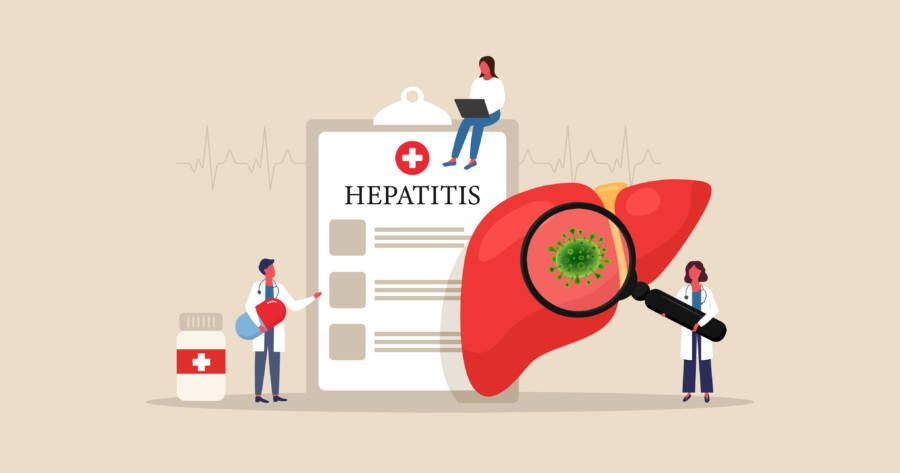Early detection of Hepatitis C is crucial for effective management and treatment. Recognizing the initial signs and symptoms can be challenging, as they are often mild and easily overlooked.
What is Hepatitis C?
Hepatitis C is an infection of the liver that can result in severe liver damage. The hepatitis C virus (HCV) causes the infection and approximately 2.4 individuals in the United States are affected, says WebMD.1 Due to limited symptoms, many infected individuals are unaware of their condition.
The virus can be transmitted through the blood or bodily fluids of an infected person, explains the source. There are various forms of the hepatitis C virus, with type 1 being the most prevalent in the United States.
Early Hepatitis C Signs
The majority of individuals who contract hepatitis C do not experience any first symptoms at all. In fact, the WHO says 80-percent of people infected with the virus do not have any early signs of illness initially.2
Symptoms, if they do develop, may differ depending on whether you have acute or chronic hepatitis C. During the acute stage of infection, the Cleveland Clinic says some people may experience vague, flu-like symptoms or symptoms similar to liver disease, such as jaundice and stomach pain.
How is it Spread?
Hepatitis C is a virus that can be transmitted through blood-to-blood contact. This means that if your blood comes into contact with the blood of someone who has the virus, you may be at risk of contracting it, warns Healthline. Transmission can occur through a variety of means, including sharing needles, getting a tattoo or piercing with non sterile equipment, and even childbirth.
Available Treatment Options
Antiviral medications are used to treat hepatitis C infections, however the duration and choice of medication depends on several factors like genotype, presence of existing liver damage, medical history, and previous treatments.
New direct-acting antiviral medications are most commonly used, which, in combination with existing ones, lead to better outcomes, shorter treatment times, and fewer side effects, says the Mayo Clinic.3
Liver transplantation may be another option if you suffer from serious complications due to chronic hepatitis C infection. The surgeon removes your damaged liver and replaces it with a healthy one. However, the Mayo Clinic notes that the infection will most likely return, so antiviral medication is still needed.
